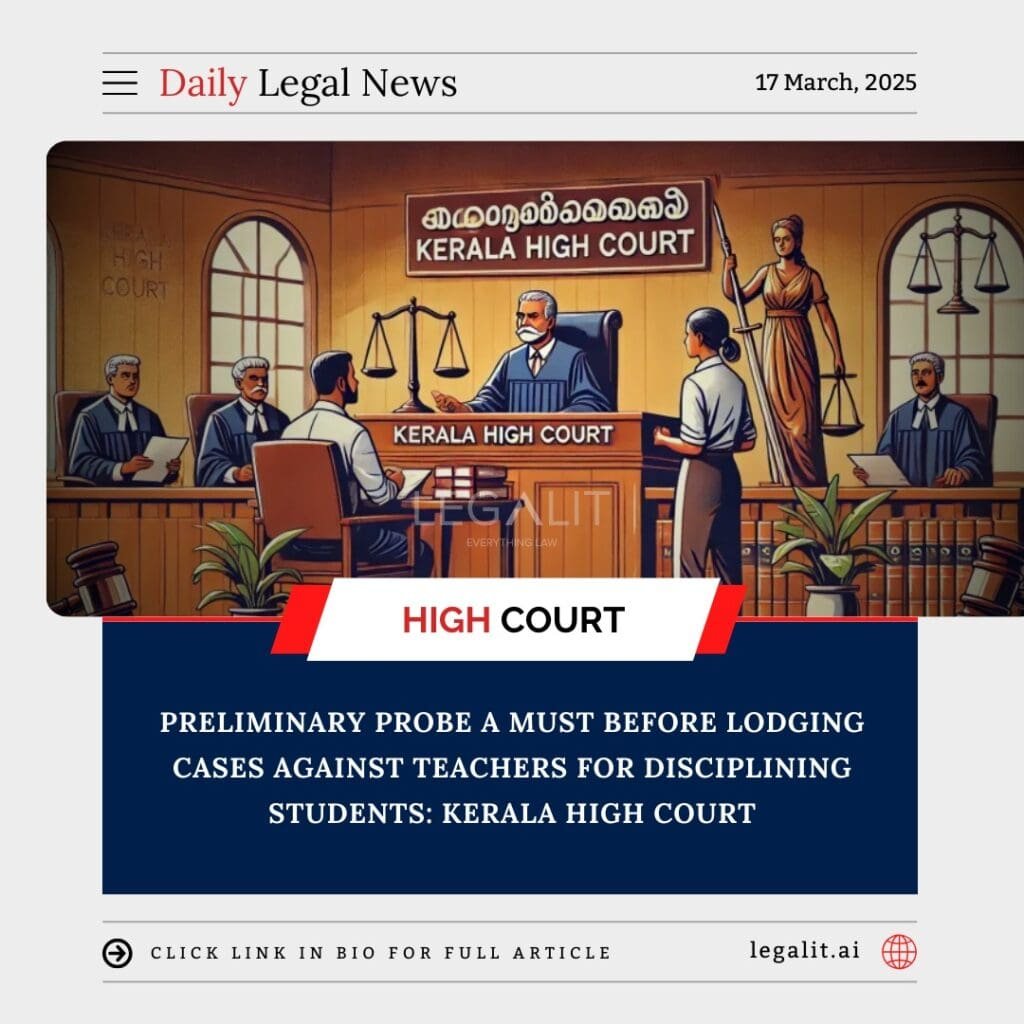
Background
The Kerala High Court has ruled that a preliminary investigation is mandatory before registering criminal cases against teachers accused of disciplining students. The court emphasized that educators should not face immediate legal action unless there is substantial evidence of misconduct. The decision aims to prevent the misuse of legal provisions against teachers while maintaining accountability for genuine instances of abuse.
The ruling came in response to a case where a teacher was booked for alleged disciplinary actions taken against a student. The court observed that an increasing number of such complaints could discourage teachers from maintaining discipline in classrooms, impacting the overall learning environment.
Court’s Rationale
- Need to Protect Teachers from Frivolous Complaints
- The court acknowledged that while student welfare is crucial, teachers also require protection from false or exaggerated allegations.
- It highlighted the importance of allowing educators to maintain discipline without constant fear of legal repercussions.
- Mandatory Preliminary Inquiry
- Before registering a case, authorities must conduct a thorough preliminary investigation to assess whether the complaint has merit.
- The court stressed that legal provisions should not be misused to harass teachers performing their duties in good faith.
- Balancing Discipline and Child Protection
- The judgment clarifies that the ruling does not justify corporal punishment or abusive behavior.
- However, it ensures that routine disciplinary measures are not misinterpreted as criminal acts.
- Legal Framework Considered
- The court referred to existing child protection laws, including the *Juvenile Justice Act, 2015, and *Protection of Children from Sexual Offences (POCSO) Act, 2012, noting that these laws should not be misapplied against teachers without due process.
Implications of the Judgment
- For Teachers – Provides legal protection against arbitrary criminal complaints, ensuring they can enforce discipline within reasonable limits.
- For Law Enforcement – Imposes a duty to conduct a preliminary inquiry before proceeding with cases against teachers.
- For Schools and Students – Reinforces the need for a balanced approach where both student rights and teacher authority are respected.
Conclusion
The Kerala High Court’s ruling establishes an essential safeguard for educators while maintaining accountability for genuine cases of misconduct. By making a preliminary probe mandatory, the judgment seeks to strike a balance between protecting students and ensuring teachers can perform their duties without undue legal harassment.